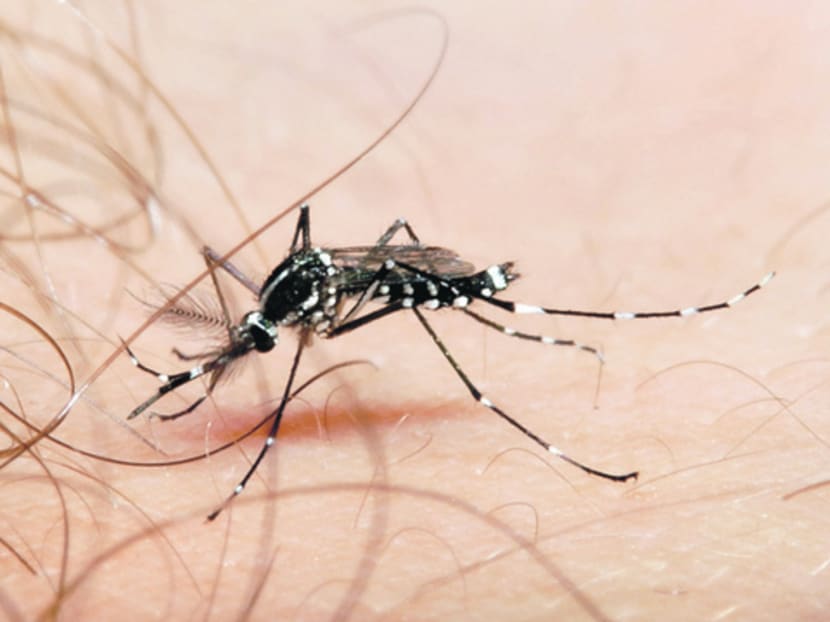Researchers engineer antibody to tackle dengue
SINGAPORE — In what could be a breakthrough in the race to find a cure for dengue, researchers have engineered a single antibody that can neutralise all four serotypes of the virus.
SINGAPORE — In what could be a breakthrough in the race to find a cure for dengue, researchers have engineered a single antibody that can neutralise all four serotypes of the virus.
Taking a different approach from other scientists working on a cocktail of four antibodies to kill the four dengue serotypes, the researchers aimed for a single antibody to minimise cost and development time.
“That doesn’t exist in nature, so it’s something we needed to engineer,” said Associate Professor Ooi Eng Eong, one of the leaders of the multi-institution team behind the project.
Using computer engineering, the team adapted the structure of a natural antibody that was effective against DENV-1 and DENV-2 so that it would be effective on all serotypes.
The antibody, which binds to the virus so it cannot infect other cells and replicate, treated dengue in mice and protected healthy ones from infection for up to a month. It was also effective on mice previously infected with dengue.
With fewer amounts of the virus in the body, dengue symptoms such as vascular leakage and low platelet count were less serious than with a control antibody, and reduced rapidly. Platelet counts did not drop, or recovered quickly.
The researchers designed the antibody to target a different part of the dengue virus from that which the human immune response targets. As a result, the engineered antibody does not compete with antibodies generated by the body, allowing one to develop immunity to the particular dengue serotype after infection.
“It all started with a conversation ... about what would really make a difference medically,” said Assoc Prof Ooi. “We thought, ‘Let’s go after a target that our immune system doesn’t see’.”
Clinical trials with biotechnology company Visterra are expected to begin at the end of next year. They will first test if the drug is safe and effective in lowering the virus count in humans at various dosages.
The project began in 2012 and the team consists of scientists and engineers from the Singapore-MIT Alliance for Research and Technology (SMART), the National University of Singapore, Nanyang Technological University (NTU) and the Massachusetts Institute of Technology (MIT).
Each had specific expertise — such as SMART and MIT in computational engineering, and NTU in crystal structural analysis, said Assoc Prof Ooi. A single-antibody breakthrough does not render research on a cocktail of four antibodies for dengue useless, he said.
Previous clinical trials on dengue treatments have failed, he noted.
“With drug development you need to take multiple approaches at the problem … these things take years,” he said. “If we put all our money into one and find in five to 10 years that it doesn’t work … it would be unprofessional that we hadn’t thought of (other) possibilities.”







